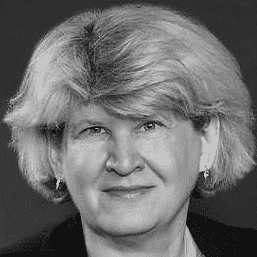At first glance, mystery novels and books about medicine may seem like two vastly different genres, but in fact they have much in common. Instead of determining whodunit, doctors determine what is it. Instead of bringing the perpetrator to justice, health professionals go after the offending pathogen.
And no matter the disease or condition, every encounter between a patient and a healthcare provider explores the wonder of the human condition.
If you enjoy mystery novels, along with a dose of history, check out these nonfiction books.
The Emperor of All Maladies: A Biography of Cancer
by Siddhartha Mukherjee, MD
In this massive and fascinating book, Mukherjee, a hematologist-oncologist at Columbia University, details the complex history of cancer. He goes from the earliest known references to the disease thousands of years ago, to recent advancements in treatment. Along the way, Mukherjee explores evolving cultural norms and societal attitudes toward people with cancer, as well as how the relationship between cancer patients and those who care for them has shifted.
The Great Influenza: The Story of the Deadliest Pandemic in History
by John M. Barry
A deadly virus stalking the world, passionate debates over business closures, and people donning homemade masks: Barry’s description of life during the H1N1 influenza pandemic of 1918 will sound eerily familiar. In this gripping account, Barry, a historian, juxtaposes vivid descriptions of overburdened hospitals and contradictory public health messaging with the determined efforts of researchers racing to pinpoint the pathogen and develop effective treatments.
When Breath Becomes Air
by Paul Kalanithi, MD
When a brilliant young neurosurgeon is diagnosed with stage IV lung cancer, he fights self-pity. He continues to work and care for patients during treatment — and also finds the time to pen a beautiful and haunting memoir, in which he muses on love, mortality, and what it means to be human.
The Hot Zone: The Terrifying True Story of the Origins of the Ebola Virus
by Richard Preston
In this gripping book, Preston, a New Yorker contributor, traces the origins of the lethal Ebola virus and intersperses that story with the terrifying account of the desperate efforts to contain an Ebola outbreak among monkeys at a research facility in Virginia. Don’t start reading this one in the evening because you’ll be up all night finishing it.
The Tennis Partner
by Abraham Verghese, MD
Physician Verghese, grieving the breakup of his marriage, strikes up a friendship with a medical resident who shares his love of tennis. As they bond over matches, Verghese learns that his young friend is grappling with drug addiction. This unvarnished and heart-wrenching memoir explores the heartbreak of addiction and the limits of what we can do to help those we love.
The Immortal Life of Henrietta Lacks
by Rebecca Skloot
When a young Black woman was treated for cervical cancer in 1951, doctors biopsied her tumor without her consent. Researchers then used her cervical cells to create the first human cell line grown in a laboratory. They didn’t realize the power her cells had; they proved instrumental in developing the polio vaccine, cancer treatments, and other medical advancements. In this absorbing and thought-provoking book, science journalist Skloot documents Lacks’ brief life, interviews her daughter, and delves into the thorny bioethical questions of consent, health equity, and the distribution of profits from medical research.
We Are All Perfectly Fine: A Memoir of Love, Medicine and Healing
by Jillian Horton, MD
Exhausted, burned-out internist Horton attends a five-day zen retreat for healthcare professionals. During her stay, she discovers that other doctors also harbor her secret feelings of guilt and inadequacy. In this heartfelt account of doctors on the emotional brink, she delves into the systemic stressors on healthcare professionals and emphasizes the importance of compassion and self-care for healers.
Originally published in the Spring/Summer 2023 print issue.

Julie Jacob is a communications professional and writer who focuses on healthcare and technology issues.










